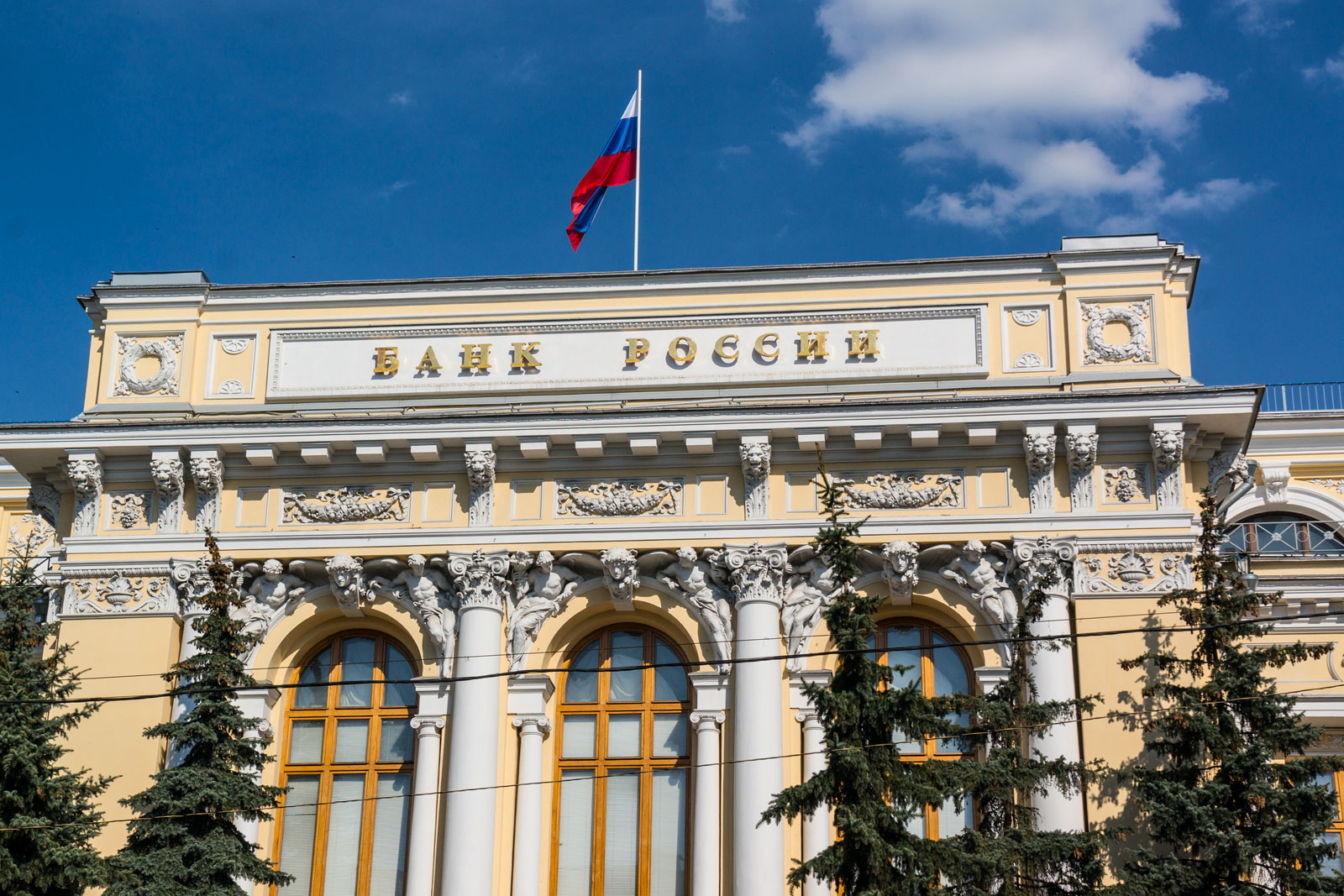Does Foreign Sovereign Immunity Apply to Sanctions on Central Banks?
The relationship between foreign sovereign immunity and sanctions against central banks is important but often mischaracterized.

Recent sanctions against Russia’s central bank have prompted news stories to mention sovereign immunity as a potential limitation on sanctions by the United States and the European Union. Some scholars assume that immunity generally applies to these assets, but the issue is more complicated than it initially appears.
Central bank assets invested in other countries receive a very high level of protection under the doctrine of foreign sovereign immunity. In the United States, as in many other countries, the international legal obligation to confer immunity on the assets of foreign central banks has been codified—the U.S. statute is called the Foreign Sovereign Immunities Act (FSIA). The FSIA, the statutes of many other countries, and international law all provide near-absolute protection to foreign central bank assets used for central banking purposes. Russian, Afghan, Venezuelan and Iranian central banks assets held at the Federal Reserve Bank or other banks in New York are entitled to these protections, yet all have been subjected to U.S. sanctions.
The FSIA and international law protect foreign states (and their agencies and instrumentalities) from the jurisdiction of domestic courts and from measures to enforce or execute judgments. Freezing central bank assets though the U.S. Treasury’s Office of the Foreign Asset Control (OFAC) does not involve a court nor does it involve any form of enforcement or execution of a judgment. Foreign sovereign immunity simply does not apply. Under the FSIA, immunity protects foreign states from jurisdiction of courts in the United States and it protects a foreign state’s property in the United States from “attachment arrest and execution.” Those three terms refer to actions against property that are related to or arise out of judicial proceedings. In the case of Russia, the OFAC directive prohibits “United States persons from engaging in transactions with the Central Bank of the Russian Federation.” That order effectively freezes assets but it is not an attachment, arrest or execution. The legal basis for the OFAC directive is an April 15, 2021 executive order by President Biden (E.O. 14024) which refers to assets that are “blocked” and may not be “transferred, paid, exported, withdrawn or otherwise dealt in.” This language does not subject central bank assets to attachment or execution. Immunity does not apply.
International law, too, provides foreign sovereign immunity from the jurisdiction of courts and from pre- and post- judgment measures to enforce or execute judgments, but not to any measure that restricts the use of central bank assets. For example, the UN Convention on the Jurisdictional Immunities of States and Their Property (not in force) provides immunity “from the jurisdiction of courts” and from “measures of constraint in connection with proceedings before a court.” That’s it. That language does not apply to the freezing of assets unrelated to court proceedings.
Some scholars argue or assume that immunity applies to any measures that hinder a foreign state’s management of its property. Yet many sanctions imposed by the EU (as described here) and by the U.S. do hinder a foreign state’s disposition of its property without anyone suggesting that immunity is an issue. A few states have protested sanctions regimes—especially central bank sanctions—as violating customary international law on immunity. For example, in 2016 Iran complained to the UN Secretary General that the sanctions imposed by the EU and the US violated fundamental principles of state immunity. Iran’s protest was supported by a coalition of non-aligned states that issued a statement of the “Non-Aligned Movement in Rejection of Unilateral Actions by the United States in Contravention of International Law, in Particular the Principle of State Immunity.”
Scholars who think that immunity limits sanctions on central banks cite Iran’s protest and the support it received from the non-aligned states. But neither Iran nor the non-aligned states were protesting the freezing of assets. Instead, they were protesting judicial decisions that ordered the assets paid to judgment creditors in terrorism cases, in particular the Supreme Court’s decision in Peterson v. Bank Markazi. In that case, a court ordered that central bank funds be used to satisfy a judgment. Immunity did apply. As others have argued, there is a difference between immunity and inviolability under international law.
That brings us to Afghan central bank assets. After the Taliban seized power in August 2021, the U.S. froze about $7 billion in Afghan central bank (DAB) assets at the Federal Reserve Bank in New York. No immunity issue (yet). In February 2022, President Biden divided the assets, with $3.5 billion going to a representative of Afghanistan as designated by the Secretary of State. In light of US foreign policy, the person so designated will not be from the Taliban, so the U.S. government may confront interesting issues of recognition under international law. There is no immunity issue, however. Note that prior administrations responded in a similar way to events in Venezuela. The U.S. froze Venezuelan central bank assets and then the State Department gave Venezuelan opposition leader Juan Guaidó control over them. That effort to drive Venezuelan President Nicolás Maduro from power has not been successful.
The other $3.5 billion in frozen Afghan assets is potentially available under U.S. law to satisfy default judgments against the Taliban. The judgments were rendered in U.S. courts against the Taliban for conduct related to the 9/11 attacks and involve a lot of money—including a $6.8 billion judgment in Havlish v. Bin-Laden. Efforts by judgment creditors to collect against the frozen central bank assets do implicate foreign sovereign immunity and are only permissible under U.S. law if they qualify for an exception to foreign sovereign immunity. For many reasons mentioned here, efforts to collect terrorism-related judgments against the frozen central bank assets should fail—those assets are protected by foreign sovereign immunity under U.S. and international law.
If the Russian central bank assets are used to satisfy Russian creditors or if those assets are otherwise subjected to measures related to a judicial process, like civil forfeiture or something similar, then immunity will apply. Moreover, the line between judicial and executive action may not always be exactly clear. For the moment, however, the sanctions imposed on Russian central bank assets do not implicate foreign sovereign immunity.
Finally, historical examples of other sanctions regimes suggest that if the war between Russia and Ukraine drags on, pressure will grow on Congress to allocate frozen assets to politically sympathetic people harmed by Russia or by the conflict. The assets might be turned over to help the people of Ukraine, as with part of the Afghan central bank assets designated for the good of the Afghan people, or to pay U.S. creditors or various kinds unable to collect against Russia, as with the Algiers Accords that ended the Iran hostage crisis of 1979-1981. Depending upon how they are structured, the latter measures could raise questions of due process, the constitutional powers of the president to resolve claims against foreign sovereigns, and sovereign immunity. Congress could resolve any immunity problems under domestic law by amending the Foreign Sovereign Immunities Act, as Congress has done in the past with respect to Iranian central bank assets. Even if domestic law is amended, such measures might nonetheless violate international law. There are some exceptions to immunity, but none that would immediately appear to apply in this situation. Even if otherwise unlawful as violations of foreign sovereign immunity, it is possible that confiscation of central bank assets might be excused under international law as countermeasures in response to Russia’s violations of international law in Ukraine. The outcome of the war in Ukraine is not certain, but the conflict has already highlighted the growing importance of economic sanctions in international affairs–including sanctions against central bank assets.


.jpg?sfvrsn=d27bd863_5)
.jpg?sfvrsn=60176b62_5)

